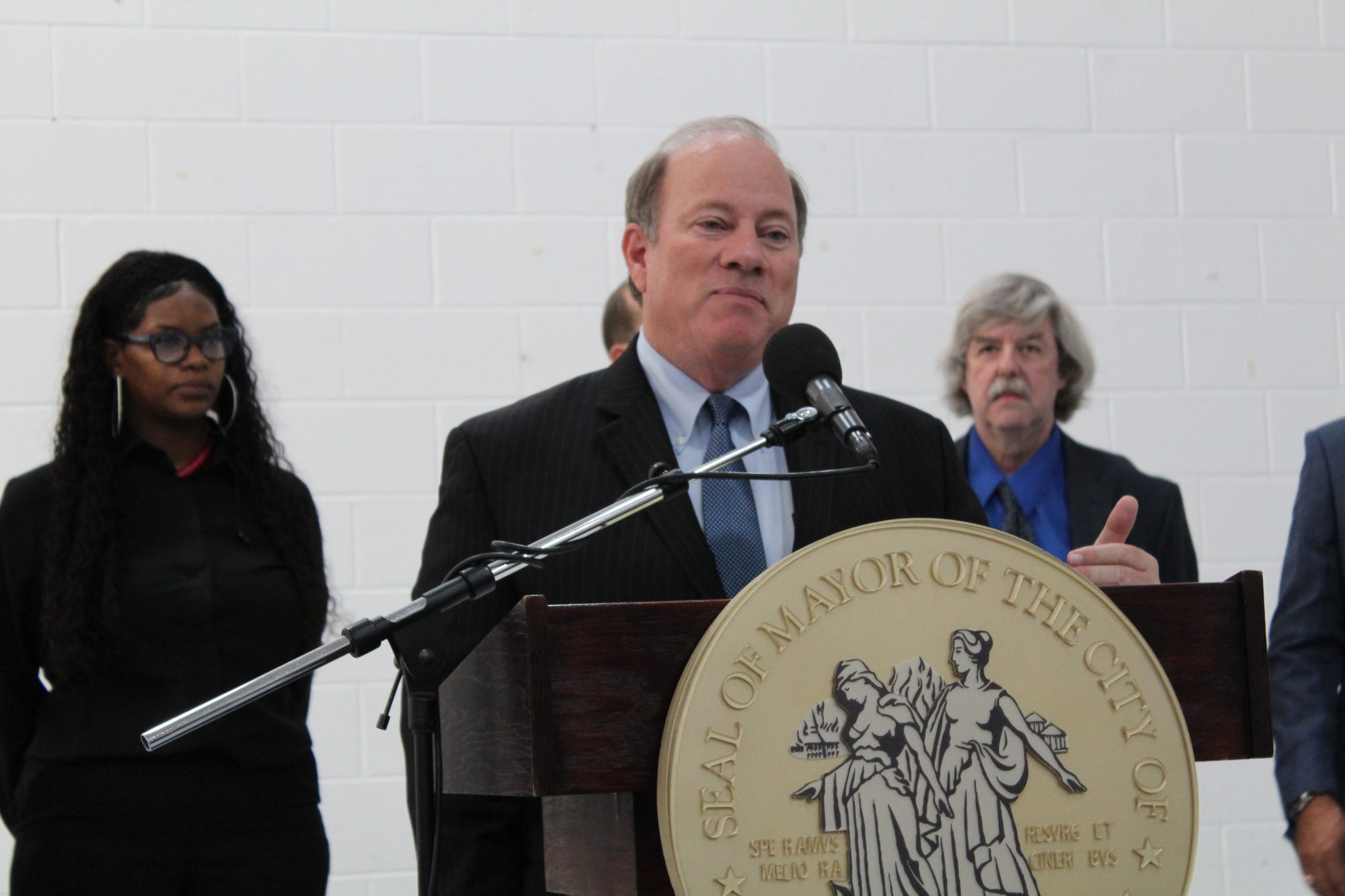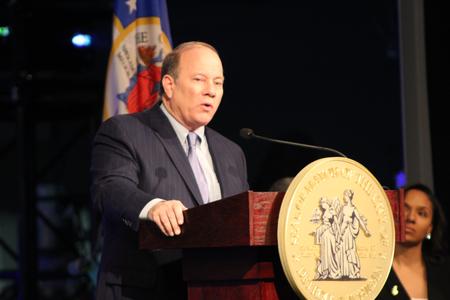The Duggan Strategy: Early Successes, Keepable Promises, Controlled Data
Bridge Magazine reports how Duggan is doing with keeping his campaign, mayoral promises.

When Detroit voters go to the polls in November, they’ll be deciding whether to give the job of mayor to state Sen. Coleman Young II, who’d like to follow in his father’s footsteps, or to let Mike Duggan keep his job at city hall.

Elected in 2013, four months after the state-appointed emergency manager filed Detroit’s bankruptcy, Duggan has had three-plus years in office. During that time he’s made promises, met some of them, and missed the mark on others, according to a new report in Bridge Magazine.
Click here for the article in Bridge, WDET’s Detroit Journalism Cooperative partner.
Reporter Chastity Pratt Dawsey, joined WDET’s Sandra Svoboda on Detroit Today to discuss what she found. In part by analyzing his “State of the City” addresses, Duggan, she says, seems to have a few rules about how he communicates about his agenda and accomplishments: Have some early successes. Make some promises you can keep. Control the data.
“Those are political strategies that have really been part of his term,” Pratt Dawsey says.
Streetlights and buses are good examples of all three of those tenets, according to Pratt Dawsey.
“Early on he talked about buses, streetlights a lot. The city replaced 65,000 streetlights, and that was something started really early on. With the buses, the city got a lot of influx of money from the Obama Administration,” she says.
But, “On peak times we still don’t see the number of buses that are required on the streets. And everybody who rides the bus in Detroit knows: they’ll get there when they get there,” Pratt Dawsey says
The city’s Open Data Portal, Pratt Dawsey and Svoboda agree, does offer more information more easily for anyone seeking data about, for example, crime in the city, business licenses,
“The Detroit data dashboard is new, it’s useful. A lot of it is up to date. There are some parts that are not,” Pratt Dawsey says. “It’s bringing Detroit into the 21st century.”

Check out the Data Portal here.
“It’s definitely controlled. It’s limited to what is up there,” Svoboda says. “It’s not like we can go and see every piece of information the city has.”
Several apps – including one that’s replace parking meters – mean residents can report problems and access city services.
You can find out more about the apps here.
Among the unmet Duggan promises, Pratt Dawsey says, is the housing demolitions. “It’s well-documented that the demolition program has had a lot of problems,” she says. Not meeting target numbers, “spending too much money, the feds are all over it.”
Nor has the city’s population increased. A few years ago, Duggan told the Wall Street Journal he should be judged by whether the population of Detroit increased during his term.
“We know that was an ambitious promise, and it was one he couldn’t keep,” Pratt Dawsey says “There are a lot of new housing starts in Midtown, downtown, but not enough. In 2016, 2017, the city lost residents, about 3,500 a year. Now that’s good because you’re talking about a city that lost tens of thousands of residents for the last 50, 60 years.”
Duggan also has failed to implement auto insurance reform, and the narrative around the city is the revitalization of downtown but not in the neighborhoods.
Some of the success Duggan claims, Pratt Dawsey says, is because city council members have spearheaded the initiatives. Raquel Castaneda Lopez shepherded municipal IDs, and Andre Spivey was involved in Project GreenLight, she says.
Still, Duggan’s 67 percent of the vote to Young’s 26 percent in the August primary may be an indicator of lopsided November results as well. “That speaks to a very wide margin of support,” Pratt Dawsey says.
The August Primary Results:
| Votes | Percent | |
| Mike Duggan (i) | 43,535 | 67% |
| Coleman Young II | 17,180 | 26% |
But Young has been exploiting the downtown-neighborhoods divide in his campaign.
“He is saying he is the one who represents the regular folks, what they need, what they want,” Pratt Dawsey says. “That’s a huge thing in his campaign, and he’s really in the neighborhoods. He’s hitting block clubs. He’s at festivals. He’s at things that you don’t necessarily see high rollers at but you would see regular folks. That’s the kind of campaign he’s running right now.”

